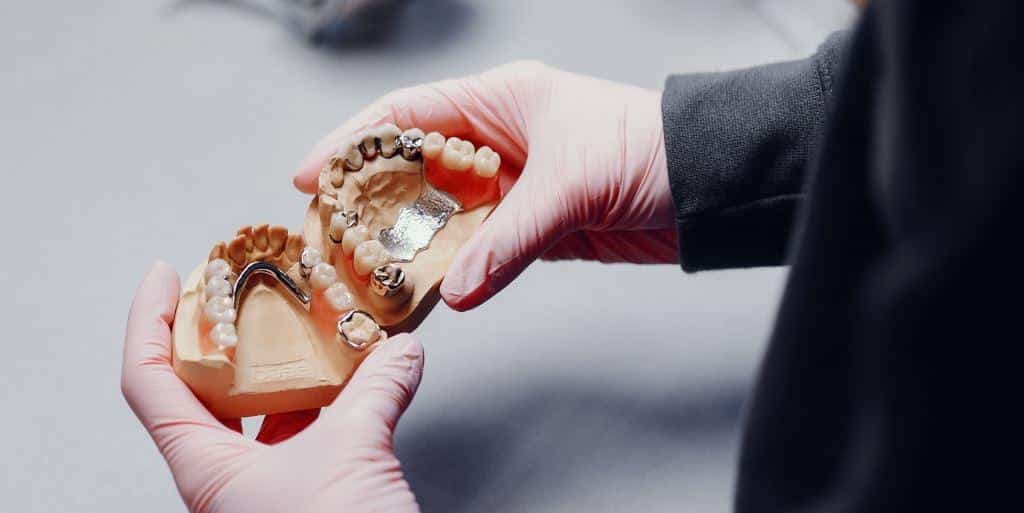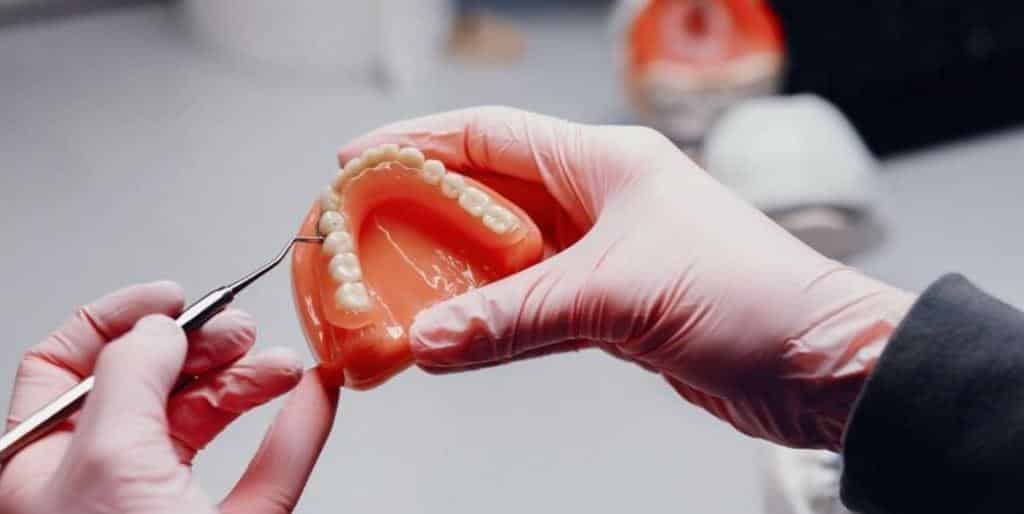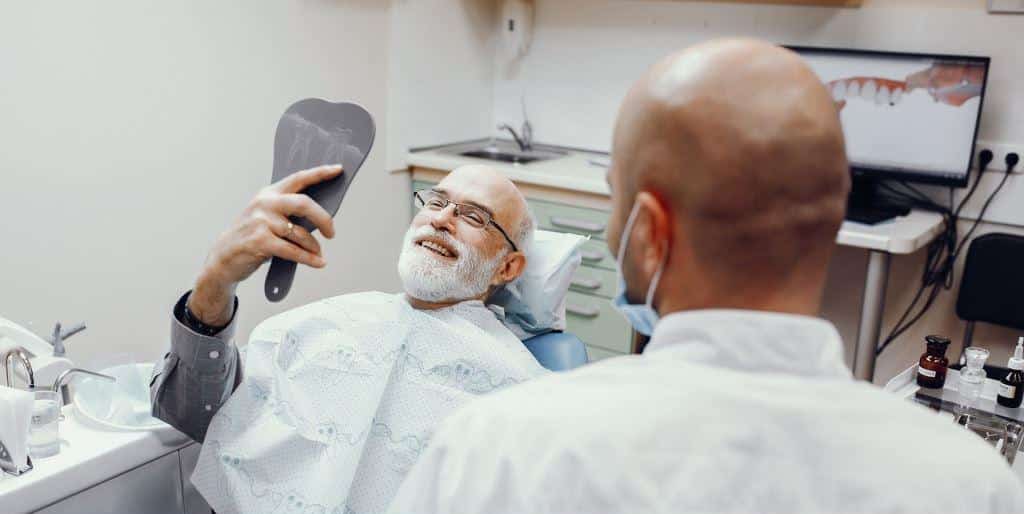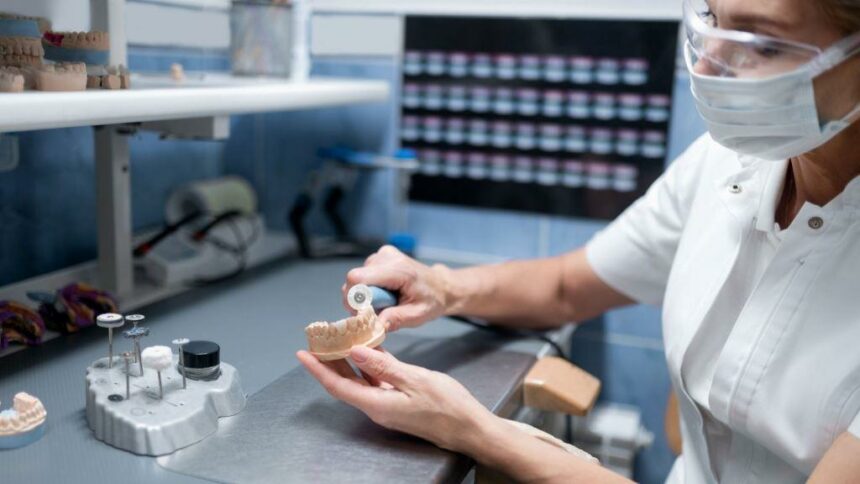Dentures need to be cared for in the same way as your own teeth, otherwise they can become damaged. But that's not the only reason - poor storage, biting on hard foods or mechanical damage can also end up with a visit to the surgery and the need for denture repair. And how denture repair in the UK works, how much it costs and when a new denture is needed - you can find out in the article below.
When is it time for a denture?
There is a perception that dentures are only for old people. This is a misconception. While complete dentures most often do indeed affect the elderly, partial dentures are a reality for many middle-aged or even young people. A partial denture may be necessary if even one tooth is already missing.
Whether you have lost a tooth as a result of some unfortunate accidentor as a result of extraction, a missing tooth can be a problem. The remaining teeth in your mouth may become loosened, displaced and are more susceptible to decay. Your facial features may also be slightly altered. You can read more about this in the post "Missing tooth - when you need to fill the gap left by an extracted tooth".
And what does the selection of a denture look like? You will find out which solution will be most beneficial for you during your visit to the prosthodontist's office. First, the prosthodontist will assess the condition of your teeth and recommend additional dental treatments, if necessary. He or she will then present you with suitable options depending on your needs and your budget.
In our office you have a choice of acrylic, frame dentures and flexible. Find out more about them in the entry "Dentures in the UK - types and prices". Dentures need to be well fitted so that denture repair UK is not necessary later.

Damage to dentures
Dentures can become damaged. More often than not, this happens through patient neglect. Denture repair in the UK is often possible, but prevention is definitely better than cure - as with everything.
The first negligence is inadequate or infrequent denture cleaning. Dentures should be cared for in the same way as your own teeth - they should be brushed at least twice a day. It is best to brush it with a special denture paste. Ordinary pastes can sometimes damage the denture coating, which can result in denture repair in the UK not being possible.
Another issue is inadequate storage. You will no doubt associate such an image - dentures in a glass of water. Absolutely do not do this. It is not the right thing to do. In addition, fungi can nest on the denture, which you will then transfer to your mouth. Store your dentures in a specially designed container. You can read more about how to care for your dentures in our post "How to care for dentures - 5 basic rules„.
Sometimes dentures break or are lost of one of the teeth, damage to the crown of the tooth also occurs. This happens, for example, due to biting on very hard products. Don't worry, it is then possible to repair dentures in the UK.

What does denture repair in the UK involve?
This depends, of course, on what type of damage has occurred. Remember absolutely not to repair dentures on your own. Go straight away to a visit to our practice. The prosthetist will assess how extensive the damage is and how long the repair will take. The repair time will vary depending on the extent of the damage.
Denture repair in the UK in a prosthetics laboratory is carried out using the material of the damaged denture. Any cracks or fractures are dealt with by reattaching the materials permanently.
Denture repair in the UK - cost
The cost of denture repair in the UK depends mainly on the denture material. You'll pay £100 to repair an acrylic denture, £150 for a skeletal denture and you'll need to expect to pay in the region of £200 for a flexible denture.
If the repair cannot be carried out, a replacement will be required. But don't worry about the cost - we remind you that at our practice, payment over £350 can be arranged in instalments. Our system is 100% secure and regulated by the Financial Conduct Authority (FCA number 619628).

Replacement of dentures
As a general rule, dentures should be replaced every three to five years or so. Firstly, dentures are not as durable as our natural teeth or implants, which you can find out more about in the article "Dental implants in the UK - types and price". Secondly, it is important to bear in mind the physiological changes taking place in our mouth. A denture is an artificial creation that will not adapt to these changes.
If your denture is no longer stable and has started to You drop even before those few years have passed, this is also an indication to replace it with a new denture. However, your best bet is to consult a prosthodontist about this, as you may only need denture repair UK.

